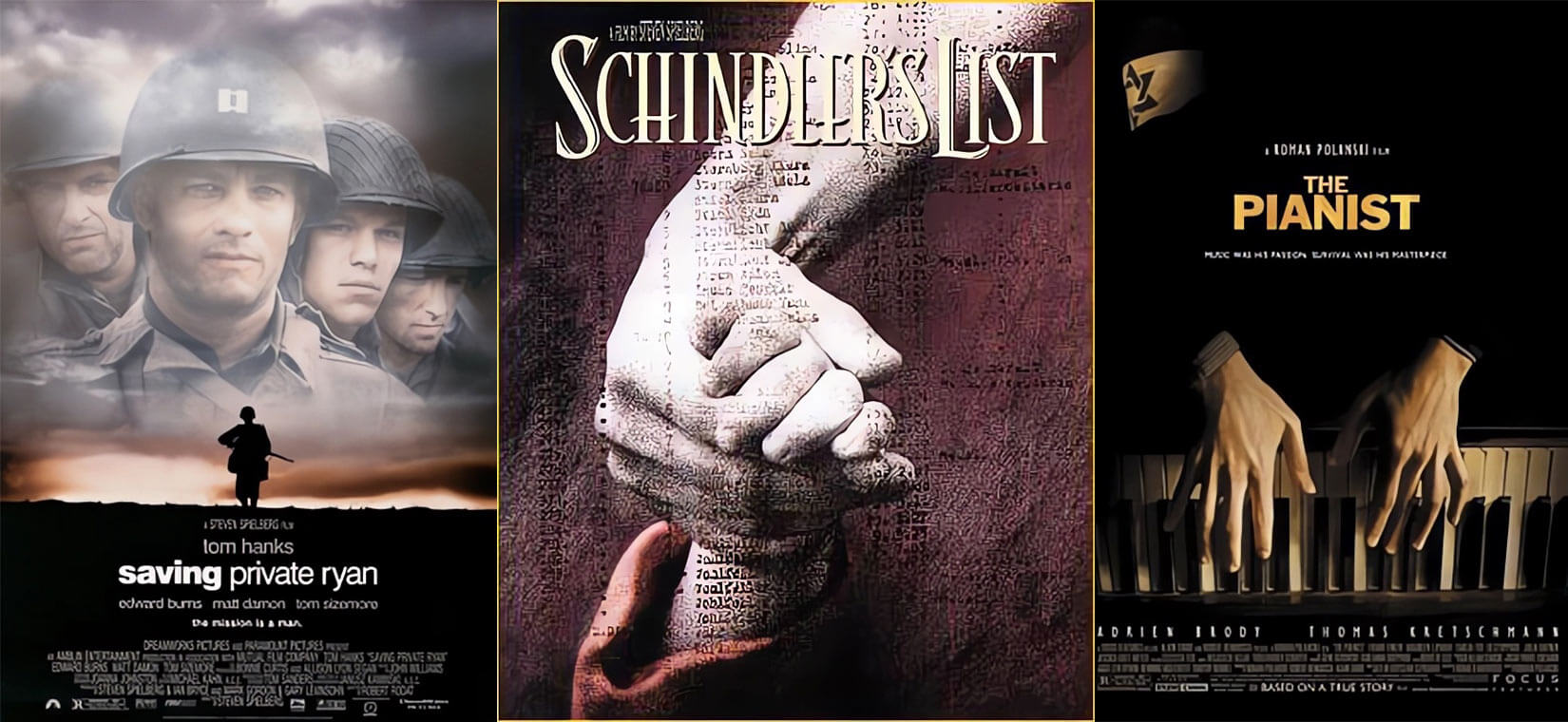Best movies about World War 2 is a topic that has garnered much attention and discussion over the years. World War 2 was a monumental event that profoundly influenced global dynamics, etching an unerasable mark on the pages of history. Its vast influence didn’t just echo through political chambers but also deeply influenced the world of cinema. The best movies about World War 2 depict the heroics, the tragedies, and the raw human stories from that era. Among the numerous films that have delved into this theme, we’ve compiled our personal list of the top five. While we stand by our choices as representing some of the best movies about World War 2, it’s crucial to acknowledge the myriad of other exceptional films in this genre, each offering a unique narrative angle and perspective.
“Saving Private Ryan” (1998) – directed by Steven Spielberg
Director & Cast: Directed by the legendary Steven Spielberg, this film boasts an impressive ensemble cast, including Tom Hanks, Matt Damon, and Vin Diesel.
Public Reception: On its release, “Saving Private Ryan” was hailed for its harrowing depiction of the D-Day invasion, showcasing the brutality of war like never before. It became not only a box-office hit but also a critical favorite, winning five Academy Awards.
Historical Perspective: From the visceral portrayal of the Normandy landings to the nuanced depiction of soldiers’ experiences, “Saving Private Ryan” is lauded for its historical accuracy and immersive portrayal of the hardships faced by soldiers during World War II.
“Schindler’s List” (1993) – directed by Steven Spielberg
Director & Cast: Another masterpiece from Steven Spielberg, “Schindler’s List” stars Liam Neeson as Oskar Schindler, Ralph Fiennes as Amon Göth, and Ben Kingsley as Itzhak Stern.
Public Reception: The film was universally acclaimed, receiving seven Academy Awards, including Best Picture. Its haunting portrayal of the Holocaust resonated deeply with audiences worldwide.
Historical Perspective: “Schindler’s List” provides an unflinching look at the horrors of the Holocaust while celebrating the humanity and bravery of those who risked everything to save others. It stands as an essential testament to a dark chapter in history.
“The Pianist” (2002) – directed by Roman Polanski
Director & Cast: Directed by Roman Polanski, this biographical war film stars Adrien Brody in the titular role of Władysław Szpilman, a Polish Jewish pianist.
Public Reception: Adrien Brody’s performance was universally acclaimed, earning him an Academy Award for Best Actor. The film itself won the Palme d’Or at the Cannes Film Festival and was well-received by audiences for its profound storytelling.
Historical Perspective: “The Pianist” paints a deeply personal picture of the Holocaust, detailing the survival of Szpilman during the German occupation of Warsaw. Its authenticity stems from the real-life experiences of Szpilman, making it a significant historical account.
“Enemy at the Gates” (2001) – directed by Jean-Jacques Annaud
Director & Cast: Directed by Jean-Jacques Annaud, this film is set during the Battle of Stalingrad and stars Jude Law, Ed Harris, and Rachel Weisz.
Public Reception: While it garnered mixed reviews from critics due to its historical liberties and romantic subplot, the performances of its lead actors and intense battle scenes were praised.
Historical Perspective: Although the movie takes some liberties with the truth, it highlights the sniper warfare during the Battle of Stalingrad, a pivotal moment in WWII. The duel between the Russian sniper Vasily Zaitsev (played by Jude Law) and his German counterpart is central to the film’s narrative.
“Letters from Iwo Jima” (2006) – directed by Clint Eastwood
Director & Cast: Directed by Clint Eastwood, this film provides a Japanese perspective on the Battle of Iwo Jima. It stars Ken Watanabe, Kazunari Ninomiya, and Tsuyoshi Ihara.
Public Reception: Universally acclaimed, “Letters from Iwo Jima” was praised for showcasing the Japanese viewpoint, a rarity in WWII films. It received four Academy Award nominations and won for Best Sound Editing.
Historical Perspective: By focusing on the Japanese soldiers defending Iwo Jima, the film gives a voice to the often overlooked perspective in the Pacific Theater. It delves deep into the personal stories, beliefs, and struggles of these soldiers, humanizing both sides of the conflict.
Historical Challenge: Can You Conquer the Past?
Answer more than 18 questions correctly, and you will win a copy of History Chronicles Magazine Vol 1! Take our interactive history quiz now and put your knowledge to the test!

